On February 13, 2016, the Rev. Vincent Pizzuto, Associate Professor of New Testament Studies at the University of San Fracisco, Episcopal priest, and founder and vicar of New Skellig Christian Community, will speak at Most Holy Redeemer Catholic Church in the Castro District of San Francisco. Pizzuto, who is openly “gay,” was raised a Roman Catholic, but left the Church over his disagreement with Magisterial teachings on homosexuality; Pizzuto is honest about his current aims: he recently described efforts to change the Church’s teachings as a “battle very much under way” and said that “the Bible, as we understand it really does not address current issues…what we need to change is not so much the scriptures, which of course we cannot change, but the interpretation that has been given to them.” Over the years, Pizzuto has presided at same-sex weddings, and his published works —including “God Has Made it Plain to Them: An Indictment of Rome’s Hermeneutic of Homophobia,” in the Winter 2008 edition of Biblical Theology Bulletin—is explicitly critical of Catholic teachings. In a discussion, “Is it Ethical to be Catholic? – Queer Perspectives,” given at Most Holy Redeemer Church in San Francisco in 2006, Pizzuto said that ethical questions have “driven faithful Catholics beyond the confines of the Roman church where they might more faithfully live out their catholic faith elsewhere. And I count myself among them.” He continued: “On this at least (homosexuality) the teaching authority of the Church is given no credence by so many gay men and lesbians because it does not demonstrate its own credibility. To the contrary, its teachings on homosexuality are so disengaged from reality as to render them utterly ridiculous.”
According to his Church’s web-site, under the header – The Celtic Christian Church/Supporting Document on Homosexuality, Pizzutio writes:
- “…taking a stand on the issue of homosexuality is not just about who we are as a church, rooted solidly in past Tradition, but moreover, how we are also called to break with entrenched prejudices and oppressive structures in Christian ‘traditionalism,’ in order to put an end to an unjust and unsupportable discrimination.
“It is impossible to separate an acceptance and validation of an individual homosexual person from an acceptance and validation of their primary relationships. - “Once again, therefore, the text betrays the idea that that for a man to engage in homosexual activity, he is being denigrated to the socially inferior status of a woman…Again, the entrenched patriarchalism found within much of our biblical literature must be recognized here, and contextualized historically-critically. In doing so, we are better able to clarify that a hermeneutic which embraces the ‘normativity of the future,’ relies on the very ethical demand of the Scriptures to call us beyond the social-historical limitations which they, themselves, contain.”
- “…having rejected the reason for which homogenital acts were condemned in the OT Holiness Code (i.e., ritual purity), it stands to reason that if the issue of homosexuality were of particular concern to Jesus or the primitive church, we should expect to find in the gospels either an alternative reason for condemning homosexuality, or an attempt to demonstrate why these acts are wrong in themselves. Neither is the case.”
- “…on the question of the ethical implications of homosexual relationships in the contemporary church, Paul’s statements in Rom 1:26-27 are inconclusive because the cultural assumptions upon which he bases them have been proven false. Like so many other instances where cultural trappings and historical limitations have been weaved into our Sacred Scriptures, proper exegesis of any given text demands that we critically discern that which is divinely inspired and therefore, universally true, as opposed to that which is a product of human shortsightedness, and therefore subject to ‘the law of diminishing relevancy.’”
- “The recognition of the nature of ‘sexual orientation,’ arrived at through modern sciences, confirms the falsity of these ancient cultural presumptions hinted at within this passage, and conversely, suggests a surprising affirmation for the homosexual community. Namely, that homosexuals are ethically bound not to act contrary to their nature as homosexuals. Or, to state this more positively, the ethics of homosexuality begins with an honest recognition, admission and integration of one’s God-given homosexual orientation, and results in a life lived in gratitude for, and loving expression of one’s sexuality.”
- “By way of conclusion then, we note several points, implied by the exegetical analysis in this document:” Homosexuality as a perceived “orientation” is only recently understood and is, thus part of the historical limitations of the world behind the biblical text.
It is essential to stress that the Bible offers no condemnation of homosexuality expressed within loving, committed unions. We need not look very far into Scripture to find affirmations of love, faithfulness, and community which all speak to the reality toward which Christian same-sex couples attempt to strive. It is part of the historical limitations of the world behind the biblical text that is responsible for the lack of understanding of a sexual “orientation,” and thus, sexual condemnation in the Bible never involves two people expressing a mutual bond of love. However, we do find condemnation of rape, sexual abuse and exploitation, idolatry, hypocrisy, and oppression; all of which are clearly contrary to the Christian gospel and none of which have any relation to loving, committed relationships. We must, therefore, never allow any Church teaching to reduce gay relationships to matters of sexuality apart from the context of love. It is not sex, but love that most centrally defines the Christian homosexual union.
To continue to ignore advances in human sciences regarding human sexuality inevitably results in an inadequate interpretation of references to homosexuality in the Bible, which in view of modern science can only be seen as two-dimensional, inadequate and ultimately oppressive.
In many areas of faith and morals the world projected by the Bible (i.e., The Kingdom of God), demands that we surpass its own historical limitations in working toward the Kingdom of God. This is not unique to the question of homosexuality, but rather places this issue in line with a host of others that have already been recognized (i.e., patriarchy, sexism, anti-Semitism, slavery, etc).
Excerpts from the “Statement of the Celtic Christian Church on Homosexuality and Same-Sex Relationships:”
- “…the prohibitions against male, same-sex relations are not moral or ethical in nature, but rather religious and cultural. The references to them as ‘abominations,’ then, have nothing to do with the sexual acts in themselves, but rather with their specific religious context within ancient Israelite culture, as acts of ritual impurity.
- “…it stands to reason that if the issue of homosexuality were of particular concern to Jesus or the primitive church, we should expect to find in the Gospels either an alternative reason for condemning it, or an attempt to demonstrate why these acts are wrong in themselves. Neither is the case. However, there are New Testament texts outside of the Gospels which are relevant to this issue, and these must be addressed in their own historical and cultural context if they are to be properly understood and interpreted for the contemporary church.”
- “To ignore the advances in the human sciences regarding human sexuality inevitably results in an inadequate, and ultimately oppressive, interpretation of the references to homosexuality in the Bible. This is not unique to the question of homosexuality. A host of other practices, such as patriarchy, sexism, anti-Semitism, slavery, and so on, have been defended by means of biblical texts.
- “During the Middle Ages, throughout the Christian world and particularly in Europe, there were Christian ceremonies solemnizing same-sex unions. These were at first only sets of prayers, but by the time of the much fuller development of liturgical marriage ceremonies in the twelfth century, they had become a complete office which included, among other elements, the lighting of candles, the placing of both persons’ hands on the Gospel, the joining of their right hands (the basic symbol of marriage in Antiquity and in the Middle Ages), the Lord’s Prayer, Eucharistic communion, and a kiss. These were ceremonies of personal commitment, and they were religious ceremonies, expressing a commitment that was blessed by a priest.”
- “…the Celtic Christian Church relates to homosexual persons in the following ways…Homosexual persons need and want intimate human relationships, as do heterosexuals. It is though such relationships, as described above, that human persons reach the full development of their personality. Such relationships between homosexual persons are to be honored and supported, and the Church’s ministry is present to help them become and be life-giving. If a homosexual couple wishes to make a public commitment to each other, the Church blesses such a desire and celebrates it by means of a marriage ceremony presided over by one of its clergypersons. Since the Celtic Christian Church is a fully sacramental church, such a marriage is a sacrament.”
To contact the Archdiocese of San Francisco about the Reverend Pizzuto being given a teaching forum in a Catholic parish: Archbishop Salvatore Cordileone, 415-614-5500.
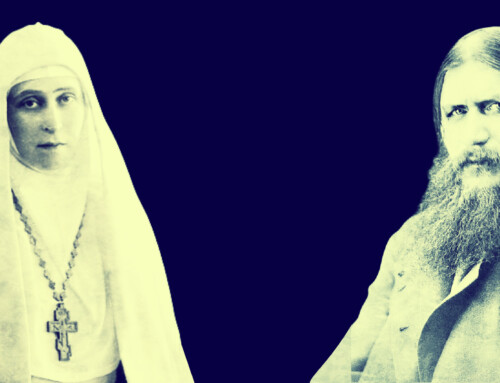
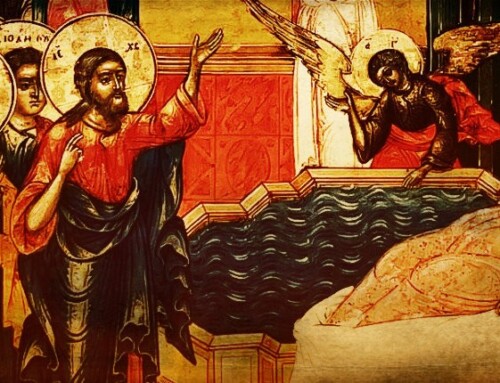
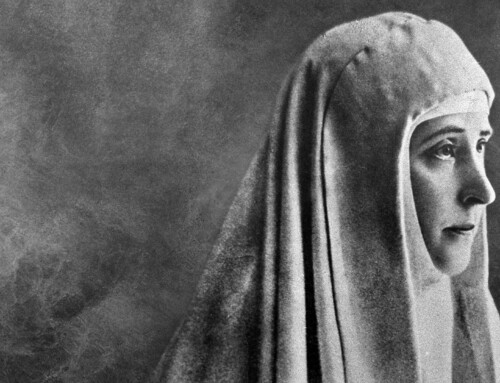
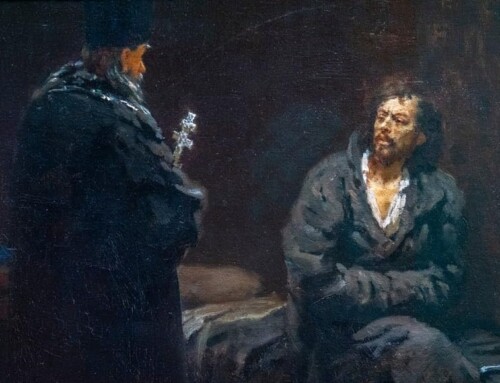
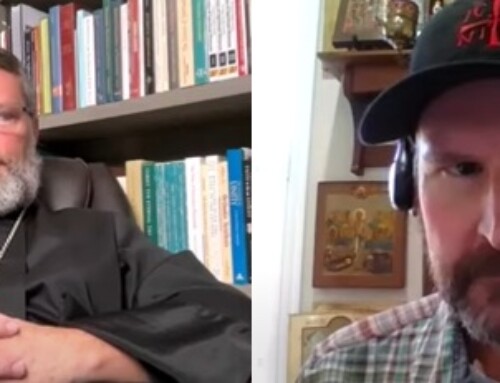
Dear Joseph, I called. A lovely woman took my concerned call and promised to pass it on to the Archbishop. God Bless you.
Such evil distortion from the pits of hell. God have mercy on all your souls, but especially those who would distort the word of God for their own perverse pleasures. You will wish for all of eternity that you would have remained in the ONE TRUE APOSTOLIC CHURCH and followed its very wise doctrines and dogmas, that are there for the salvation of souls. Our Lady of Sorrows, please have mercy and forgive them for what they are doing to your Son.
What part of; “sodomites will not enter the kingdom of heaven” do they not understand?
It is an abomination, no matter how it is self interpreted , explained away etc. It must be a heavy cross but there is the remedy of prayer and confession.
Very sad to read how twisted is the thinking of those desperate for acceptability as “normal”. To try to reinterpret the Bible to suit their purpose is perverse and dangerous to the salvation of their souls and those they influence.
Jesus on Homosexuality
Posted by Pastor J.D. on January 31, 2011
We can be sure that Jesus viewed homosexuality as a sin. How do we know? 3 ways:
1) Jesus did not come to abolish the law, but fulfill it. There were dimensions of the Jewish law that do not carry over into Christianity. But Christ told us He fulfilled the law, not reneged on it. As He explained, He heightened its morality (Matt 5:17-20); fulfilled its signs, made good on its promises and gave substance to its shadows (Luke 24:46-47). He did not come hat in hand conceding that Old Testament God was backwards and uninformed. Leviticus says that God finds homosexuality “detestable” (Lev 18:22). God did not change, morally, in the New Testament. What God finds detestable one day He does not suddenly find agreeable the next. Now, if anything, Jesus says, we have a morality that now supercedes, and not contradicts, the moral law (Matt 5:17-21). Certain ceremonial shadows and social codes were fulfilled in Christ, but He did not, in any way, come to revise the God behind the law.
But why, you ask, didn’t Jesus speak directly against homosexuality? Simply put, He assumed the moral tenets of the Mosaic law, as did the people He spoke to. He also didn’t directly speak against bestiality, genocide, child molestation, or gang rape because these things were assumed, based on the Mosaic Law, to be sinful. You cannot separate His teaching from its Old Testament backdrop. His every word, He said, has its anchor and meaning in the Old. It is true that Jesus said that the Great Commandment was to “love God and love others” (Matthew 22:37-38) but note that He said in that same passage that that “Great Commandment” was the summation of the OT law. In other words, the OT law was an expression of what it looked like to love God and love others. “Love God and love others” was an abbreviated version of what the OT law gave in longer form.
To say that because He never mentioned it we should assume He’s ambivalent about it is the logical fallacy of “argument from silence,” and in this case its a really bad one that completely ignores Jesus’ context.
2) Positively, Jesus affirmed the Mosaic on marriage as between a man and a woman (Matthew 5:32ff; Mark 10:7-11, et al). Jesus’ morality was more a positive assertion than a negative delineation. Jesus gave us a positive vision of sexuality and marriage, which is a man and woman in consensual, lifelong commitment. What falls short of the positive ideal is “sin.” In fact, that’s literally what the Greek word for sin (hamar) means: “to fall short of the mark.” Thus, any form of sexual deviation from that (polygamy, homosexuality, sex outside of marriage) is considered sinful.
3) Jesus’ followers, to whom he committed the job of explicating his teaching (John 14:26), were more than clear on the issue when it became relevant to address. As opposed to Jesus’ Palestinian context, in Paul’s context, the Greco-Roman world, homosexuality was a real issue. So we should not be surprised Paul was clear on it. He called “women giving up natural relations and burning in lust for one another,” and men doing the same, a sign of God’s judgment (Romans 1:26-27; cf. 1 Cor 6:9-11 and 1 Tim 6:10).
Thus, what you see is that ANY place where homosexuality is an issue, whether in Moses’ time (the Canaanites) or Paul’s time (the Roman world), homosexuality is explicitly called sin.
We were warned in advance that the devil can appear as an angel of light. This could be a good example. Pilate was looking straight into the face of truth when he responded to Christ ” Truth, what is truth?” Pizzuto has the same problem.
This comment has been removed by a blog administrator.
If it were not San Francisco, I would not believe that a Catholic church would welcome this speaker. From the scripture written above, what the homosexuals think is Gods love accepting their behavior, it is actually His judgment and giving them over to their depraved mind. There is a self made blindness whenever someone is caught up in sin, but this blindness is deeper and is God-given, only a very large amount of prayer and grace will save them.
If you see from whom the invite is from, this spells disaster, from 'Centering Prayer', and the 'Contemplative Outreach'. This movement is schismatic, new age and anti-Christian.
The Diocese of San Fransisco has to do ban this movement and ban the “Reverent Pizzuto”.
Something needs be done by the Archdiocese and the Vatican should be notefide about this, and for the Vatican take measures against The Contemplative Outreach (Centering Prayer), Reverend Pizzuto and the Holy Redeemer Church.